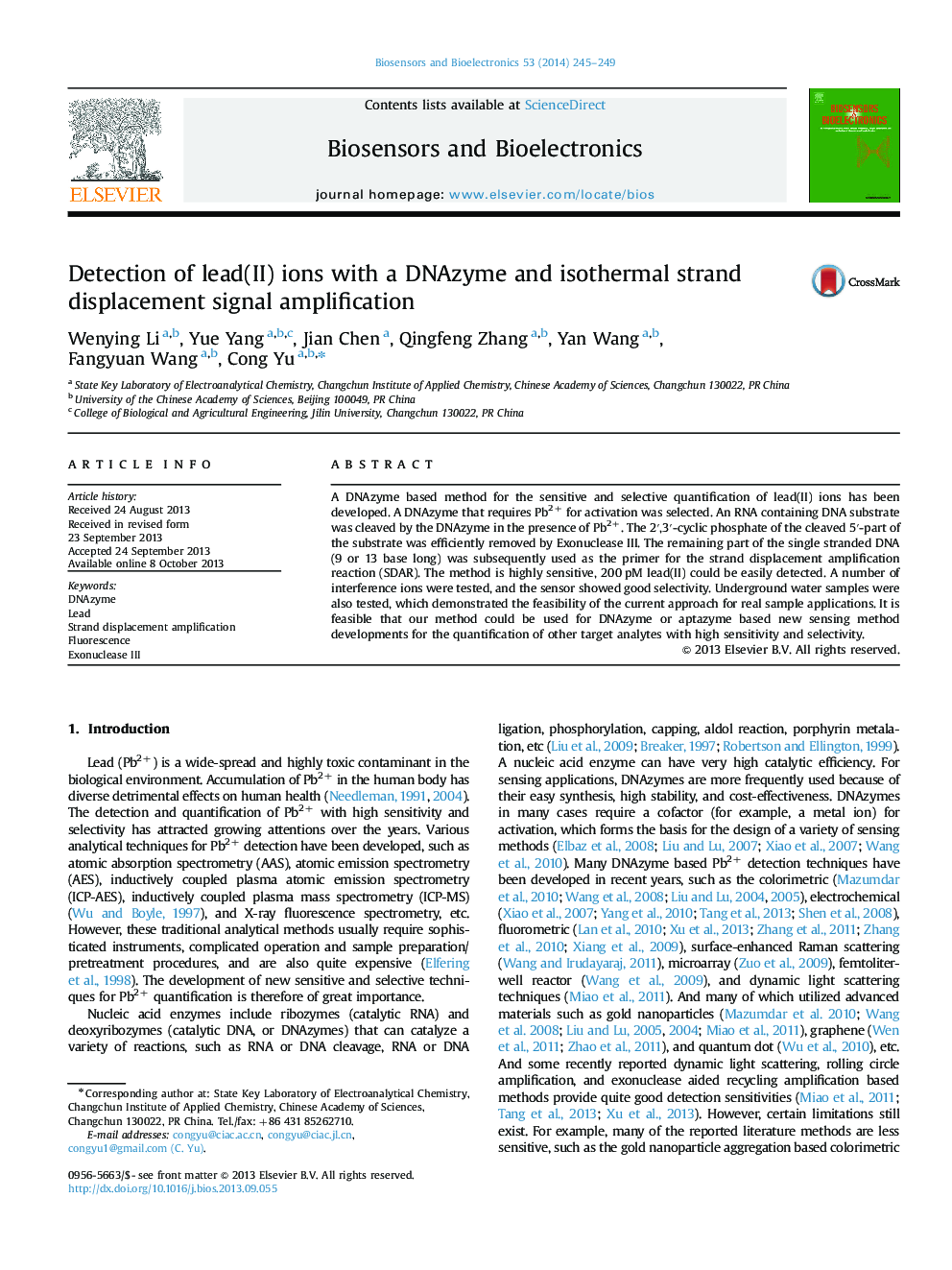| کد مقاله | کد نشریه | سال انتشار | مقاله انگلیسی | نسخه تمام متن |
|---|---|---|---|---|
| 866698 | 1470978 | 2014 | 5 صفحه PDF | دانلود رایگان |

• A highly sensitive and selective DNAzyme based method for Pb2+ quantification has been developed.
• Exonuclease III was used for the efficient removal of the 2′,3′-cyclic phosphate.
• DNAzyme provided the selectivity of the assay.
• Strand displacement signal amplification reaction enhanced the detection sensitivity.
A DNAzyme based method for the sensitive and selective quantification of lead(II) ions has been developed. A DNAzyme that requires Pb2+ for activation was selected. An RNA containing DNA substrate was cleaved by the DNAzyme in the presence of Pb2+. The 2′,3′-cyclic phosphate of the cleaved 5′-part of the substrate was efficiently removed by Exonuclease III. The remaining part of the single stranded DNA (9 or 13 base long) was subsequently used as the primer for the strand displacement amplification reaction (SDAR). The method is highly sensitive, 200 pM lead(II) could be easily detected. A number of interference ions were tested, and the sensor showed good selectivity. Underground water samples were also tested, which demonstrated the feasibility of the current approach for real sample applications. It is feasible that our method could be used for DNAzyme or aptazyme based new sensing method developments for the quantification of other target analytes with high sensitivity and selectivity.
Journal: Biosensors and Bioelectronics - Volume 53, 15 March 2014, Pages 245–249